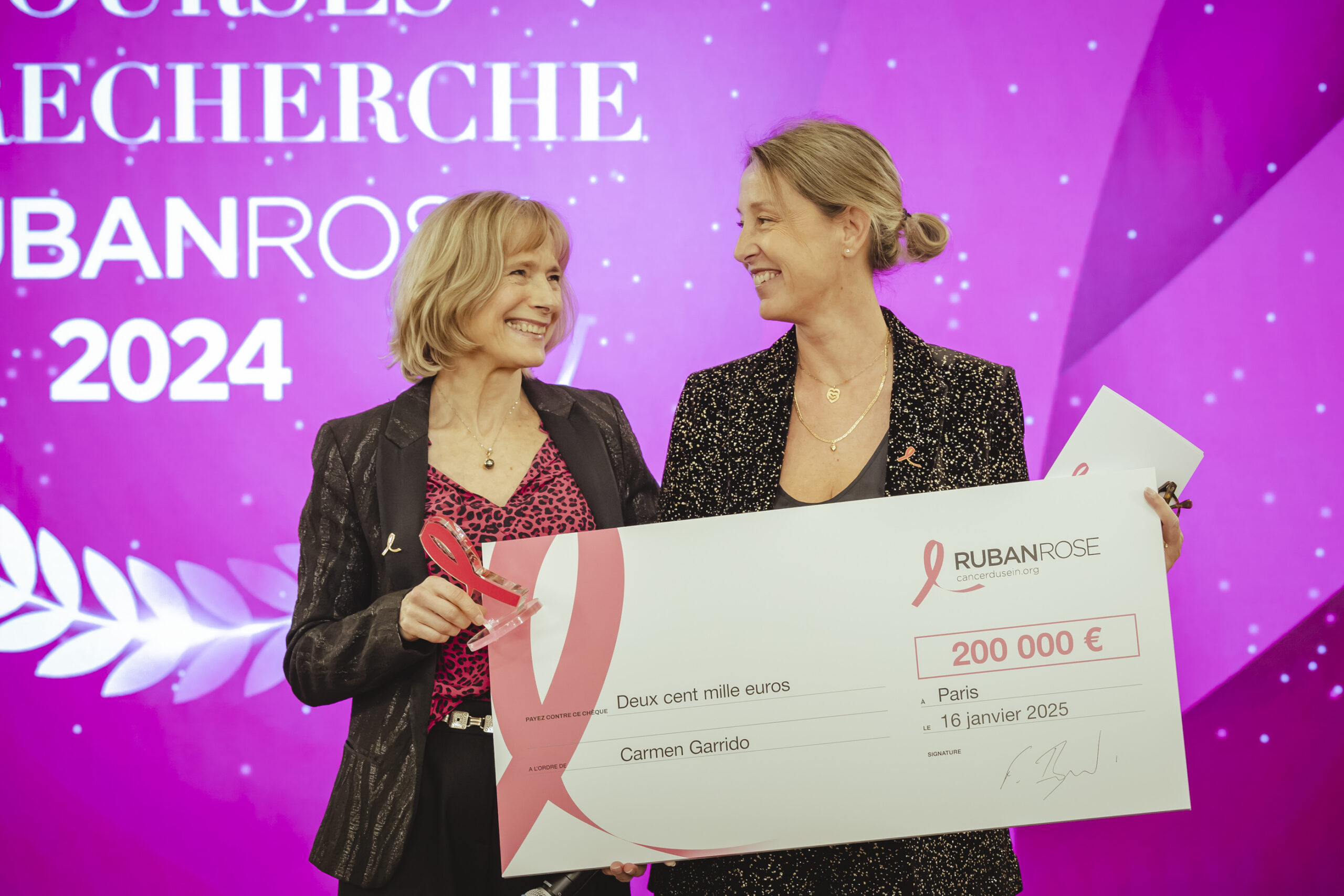Carmen Garrido wins a Ruban rose scholarship to fund her cancer research

Dr Carmen Garrido, Director of Research at Inserm and member of the CTM laboratory from Université Bourgogne Europe, has been awarded this year’s Ruban rose grant for her research into cell-based cancer therapies.
Dr Carmen Garrido, research director of exceptional rank at Inserm and member of the CTM laboratory from Université Bourgogne Europe, recently received the Ruban rose 2025 grant, worth €200,000, to fund her research into cellular therapies against cancer. This award is in recognition of her pioneering work in the field of immunotherapy, which she had already won the Grand Prix Ruban rose in 2021. She is continuing her research at the Georges-François-Leclerc Centre in Dijon, where she works closely with her team of 50 researchers. This grant marks a turning point in her work, supporting projects that promise to revolutionise the way cancer patients are treated.
The aim of the Pink Ribbon 2025 grant is to support an innovative immunotherapy project. Unlike chemotherapy, which targets cancerous and healthy cells indiscriminately, the aim of immunotherapy is to stimulate the patient’s immune system to specifically recognise and eliminate tumour cells. The immune system, which includes lymphocytes, is naturally designed to defend against pathogens, but has difficulty recognising cancer cells, which are often similar to the body’s normal cells. Dr Garrido’s project involves taking these immune cells, genetically modifying them to make them more effective and, finally, reinjecting them into the patient so that they can better target and destroy the tumour.
This type of therapy has already shown promising results for haematological cancers, thanks to the innovation of CAR-T cells, but is still less effective for solid tumours. One of the project’s major advances lies in the work on modified antibodies, which, once integrated into T lymphocytes, should enable cancer cells to be recognised and eliminated more effectively. Although the team is still at the pre-clinical stage, the ambition is to strengthen this model before moving on to clinical trials and, ultimately, to produce these antibodies locally.